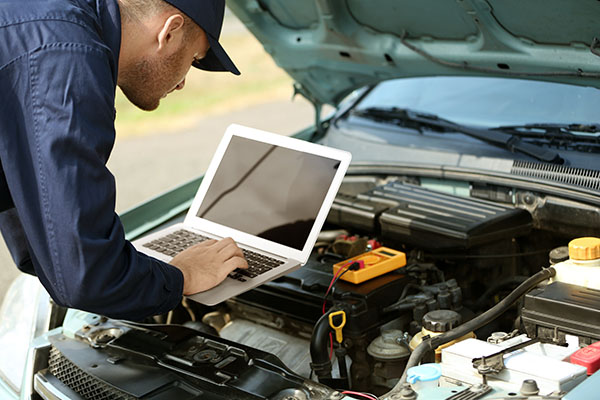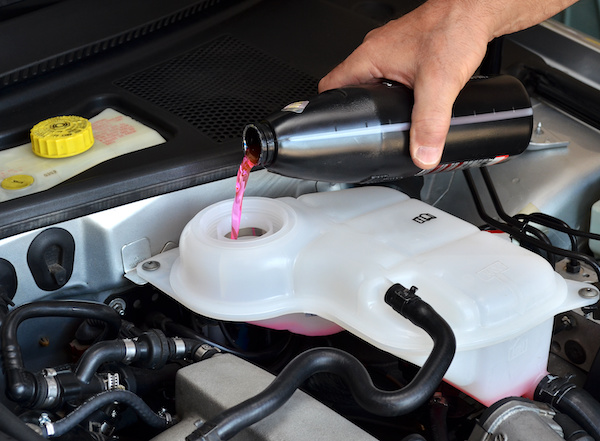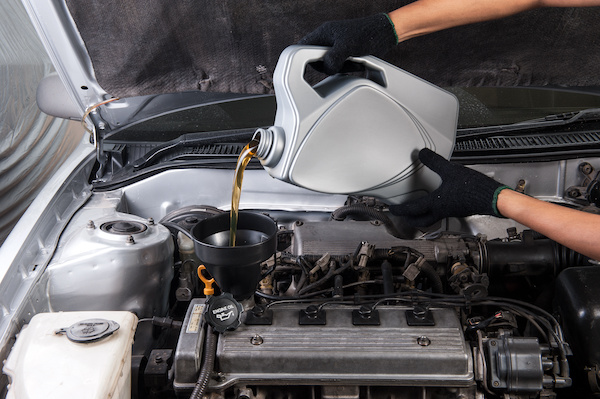Posted on 11/27/2023
.jpeg)
Imagine a world where your car's wheels just limped along the road, solely dependent on their roundness to roll you to your destination. Sounds incredible, right? That's because we often overlook the silent powerhouse responsible for converting engine power into wheel movement – the axle. The Backbone of Vehicle Mobility At its core, an axle is a rod or shaft that connects the wheels of your vehicle. But it's not just a passive piece of metal - it's the crucial link in the chain that transmits power from your car's engine to its wheels. Without it, your wheels would be lifeless disks, unable to respond to your steering wheel's commands or the demands of an incline. In vehicles with front-wheel drive, the axles are part of a complex system involving CV joints (constant-velocity joints) that allow for flexibility as you steer ... read more
Posted on 10/30/2023

In the intricate world of modern vehicle maintenance, computer diagnostics play a pivotal role in identifying and resolving potential issues, ensuring optimal performance and reliability. However, navigating the complexities of this advanced technology can often raise a myriad of questions for vehicle owners. From understanding the purpose of computer diagnostics to grasping its significance in the realm of automotive maintenance, let's delve into some commonly asked questions and comprehensive answers! What is the Purpose of Computer Diagnostics in Vehicles? Computer diagnostics serve as a comprehensive tool for identifying and analyzing potential issues within a vehicle's complex systems, ranging from the engine and transmission to the brakes and electrical components. By accessing the vehicle's onboard computer systems, technicians can pin ... read more
Posted on 9/30/2023

When you hop into your car and flick the switch to activate your windshield wipers during a rainstorm, you probably don't think much about their history. But the story behind these essential car accessories is more fascinating than you might imagine. The concept of windshield wipers dates back to the early 1900s when automobiles were still a novelty. The first wipers were far from the sleek, efficient devices we know today. Picture a hand-cranked contraption operated by the driver or a passenger. It wasn't exactly convenient, but it served its purpose in keeping the windshield clear. In 1903, a woman named Mary Anderson received a patent for her innovative window-cleaning device. Her design featured a lever inside the car that could be manually operated to move a rubber blade back and forth across the windshield. While it wasn't widely adopted at the time, it laid the foundation for future windshield wiper developments. It wasn't until the 1920s that electric windshi ... read more
Posted on 8/31/2023

In the world of automotive care, there's a hidden ritual that transforms your car from a mere machine into a purring, high-performance beast. Forget the mundane oil changes and tire rotations; today, we're diving into the realm of fluid flushes. Engine Oil: The Heartbeat of Your Car Let's start with the superstar of vehicle fluids – engine oil. It's not just any liquid; it's the lifeblood of your engine. Engine oil lubricates moving parts, reduces friction, and helps dissipate heat. Over time, it can break down and become less effective. That's why regular oil changes are crucial. Your car's manual or a trusted mechanic can tell you the right schedule for your specific make and model. Transmission Fluid: Smooth Shifting Ahead If engine oil is the heart, transmission fluid is the muscle. It ensures smooth gear changes and keeps your transmission in top shape. Regularly checking and changing your transmission fluid can prevent costly repairs do ... read more
Posted on 7/30/2023

Picking the right motor oil for your car can be overwhelming because there are many options, including synthetic oil, conventional oil, high mileage oil, and synthetic blend oil. If you pick the wrong option it will negatively affect your car's performance. It could also lead to engine trouble. The following is how to choose the right motor oil for you: Car Age The oil you choose for your car should depend on how old it is. Cars with over 100,000 miles should use high-mileage oil. New cars should use synthetic or conventional motor oil. The car will run smoothly, but if you start noticing oil leaks or engine noises, you should make the switch to high-mileage oil. Driving Style Another category that influences your car's type of oil is the type of driver you are. Drivers typically fall into two categories: short-distance (within cities) and long-range drivers. City driving is hard on your vehicle because of all the starting and stopping. The car's temperature is usuall ... read more